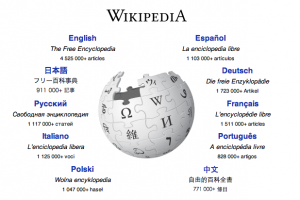Almost two decades ago, when I worked as a healer, I had my hands on a male client when my husband called.
New York city apartments being constrained for space, my healing table stood in the living room, not far from the answering machine.
My husband’s voice rang out as he left a message. He had a deep, resonant voice; it was one of his best features, a pleasure to hear.
But the client didn’t think so. “Just listen to him,” my client growled, “so sure of his own prerogative!”
Those words, and my client’s scathing tone, branded themselves irrevocably on my mind. It was early in my career as an energy healer, and this was my first palpable experience of psychosexual transference.
I remember freezing and thinking, “Uh oh. This can’t be good.”
Sure enough, a few months later my client erupted into blind rage. He spewed verbal venom at me, at length, haughtily assuring me that I was in delusion about myself as a writer, he had the proof, and therefore he couldn’t trust me anymore as a healer.
In fact, I had made a grievous mistake some days earlier: I had broken a boundary. My client was a well-known journalist; he offered to read a manuscript I had just finished, and I accepted his offer. The manuscript was a first draft hot off my printer, and it wasn’t even spellchecked. Remember those ancient days, when Word Perfect didn’t automatically spellcheck a document?
I told him it was a first draft. I said it hadn’t been spellchecked. Then I made the mistake. I handed the manuscript over to him.
Right around the same time, I had informed him that I had to start charging him for sessions. Mutual friends had introduced us when he told them he was writing a book about healing. At their urging, he came for one session. Then he came for many more, all free.
I had gotten sucked into this arrangement because he was writing a book, but healing was my business. I couldn’t afford to keep giving away sessions. It was time to set a boundary with him.
When he started working with me, he was a charming, brilliant, and carefully guarded playboy. He was locked into an unconscious certainty that no woman was good enough–beautiful enough, rich enough, wonderful enough–for him.
Most of the work I did with him focused on his heart. Not to be too technical about it, but I restructured his heart chakra and wove the energy of love into his being during every single session I gave him. There was other work too, but for him, it always came back to opening his heart.
By our last session, when he attacked me so vociferously, he was monogamously dating a woman to whom he would soon be engaged. He later married her. This particular woman was that beautiful, rich, and wonderful–she was exquisite, in fact, and talented and accomplished. But I also believe that the work I did on his heart and soul helped him reach a place where he could love someone deeply enough, and with enough maturity, to commit.
Over the decades, in order to deal with certain people in my life and to continue working on myself, I’ve read a lot about borderlines and narcissists. Borderlines are empty and have only rudimentary self-soothing skills. It gives them that astonishingly quick, unpredictable trigger: one minute you’re a saint, and the next you’re evil incarnate. They’re vicious.
And narcissists, well, they’re on the spectrum of sociopathy. Since the world must reflect their perfection back to them at every moment–and let’s face it, the world ain’t that pretty–narcissists are steeped in their own victimization. So steeped, in fact, that they can justify all manner of criminally unkind behavior. Narcissists are cruel.
I never figured out which category my client fit, if he fit into one at all. I only know that two years after he ceased working with me, his book about healing and healers was published.
He had written an entire chapter about me and our work together, employing a pseudonym that did not disguise my identity to others in the healing world. Using terribly clever and expressive language to skewer my writing ability, he went on for a few pages about what a terrible writer I was. I read it with astonishment. There was no mention of the warning I had given him: that it had been an unspellchecked first draft.
I have always loved Anne Lamott’s beautiful book on the craft of writing, Bird by Bird, with its outright approbation for ‘shitty first drafts,’ a term which she has immortalized, and claims is practically obligatory:
Now, practically even better news than that of short assignments is the idea of shitty first drafts. All good writers write them. This is how they end up with good second drafts and terrific third drafts.
Lamott, Anne. Bird by Bird: Some Instructions on Writing and Life. New York: Anchor, 1995.
In fact, I had entrusted my manuscript to that long-ago client hoping he would give me feedback that would help me take my shitty first draft to the next level, to being a good second draft.
My bad. I shouldn’t have given him the manuscript. He was my client, and I knew he was in the grips of deep and unconscious projections onto me. I learned a hard lesson about not breaking boundaries with a client.
After reading my client’s printed criticism, the gist of which was even picked up in a Publisher’s Weekly review, I cried for a few days. Then I moved on. He wasn’t the first, or the last, person to blast me with his negative projections.
Transference is a bitch.
In 2005 my novel Immortal sold to BantamDell, and it was published in 2008. It was published on four continents; it was a bestseller in a few countries. Since then I’ve published eight more books, of which five are novels.
My novels get good reviews and they’ve been socked with bad ones. Then there are the splendid reviews. After all these decades of working on my craft as a writer, I get some spine-tinglingly excellent reviews. I’ve worked hard for them, and I’ve earned them.
When drafting this post, I considered which great reviews to quote, to “prove” that I’m a good writer–occasionally, at my best moments, an excellent one. I’d bet 50 bucks cash money that my client still has that shitty, unspellchecked first draft of mine tucked into a drawer somewhere so that he can “prove” what he said about me being a terrible writer. He was that kind of person.
So I thought of quoting twenty or fifty reviews that say my books are wonderful; there are at least that many. Or perhaps I would quote from the fan email I regularly receive. My readers are vocal and appreciative and they reach out. I’m lucky that way. I could mention the awards my books have won or the “Best of” lists to which they’ve been appointed by enthusiastic book review bloggers.
But in the end, overkill is unnecessary. That old client is inconsequential, a distant and unpleasant memory from my past. What matters is that readers buy and enjoy my books.
I offer one quote, from a review of Far Shore (Book 3 of the After Series) by a book review blogger who had conflicting feelings about the novel. I could have chosen a rave review, there are plenty of those. I am grateful for every one of them, too. People have busy, complex lives and I appreciate it when they take the time to read one of my novels and write about it.
This particular review, on The Lost Entwife blog, reflects the reader’s ambivalence about the book. There were two sentences that have stayed with me and give me deep personal satisfaction. They prove something to me about my merit as a writer:
If nothing else, Slatton writes in such an addictive way that I could swear there was some sort of addictive substance between the pages. I know when I pick up one of her books I am not going to want to put it down until I finish it, and Far Shore was no different.
Writing well is the best revenge.
Listen to this blogpost as a podcast on iTunes
here.










